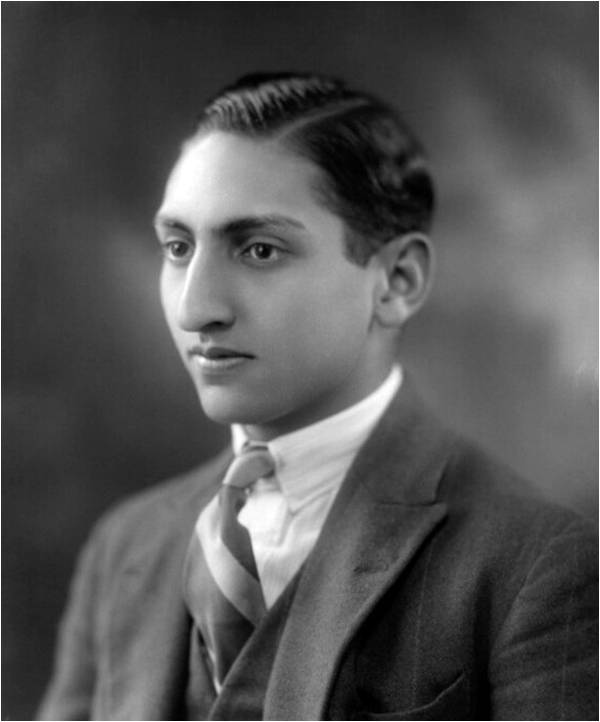
Nawab Iftikhar Ali Khan, sometimes I. A. K. Pataudi (1910-1952) was the 8th Nawab of Pataudi and the captain of the India national cricket team for the tour to England in 1946. His son Mansoor, known as the Nawab of Pataudi Jr., also later served as captain of the India cricket team.
He also played Test cricket for the England team in 1932 and 1934, making him one of the few cricketers to have played Test cricket for two countries and the only Test cricketer to have played for both India and England. He played in six Tests in all, three as captain of India and three for England.
Iftikhar Ali Khan was born at Pataudi House in Delhi, into the family of the Nawabs of Pataudi, a small non-salute princely state near Delhi, located in the present-day Indian state of Haryana. He was the elder son of Nawab Muhammad Ibrahim Ali Khan of Pataudi and his wife Shahar Bano Begum, daughter of Amiruddin Ahmad Khan, the Nawab of Loharu. Thus he was related to great Urdu poet Mirza Ghalib as well as later day Pakistan prime minister, Liaqat Ali Khan. He became Nawab on his father’s death in 1917 and was formally installed as ruler in December 1931. His state became part of the newly independent India in 1948. After the Indian independence, he was employed in the Indian Foreign Office till the time of his death.
The line of succession to the former throne of Bhopal, among the pre-eminent Indian principalities, was, uniquely amongst the Indian princely houses, by male-preference primogeniture in the direct family line. This principle of succession was formally established by the last Nawab of Bhopal, Hamidullah Khan, upon his confirmation as ruler of Bhopal in 1926. Since his death in 1960, the identity of the present rightful claimant to the former throne remains a matter of contention, though the claim of the descendants of his second daughter Sajida Sultan has been recognised by the Indian government and courts. As the Indian government has discontinued the official recognition of princely families since 1971, however, this question has primarily been examined since then with respect to property inheritance rights.
He also played Test cricket for the England team in 1932 and 1934, making him one of the few cricketers to have played Test cricket for two countries and the only Test cricketer to have played for both India and England. He played in six Tests in all, three as captain of India and three for England.
Iftikhar Ali Khan was born at Pataudi House in Delhi, into the family of the Nawabs of Pataudi, a small non-salute princely state near Delhi, located in the present-day Indian state of Haryana. He was the elder son of Nawab Muhammad Ibrahim Ali Khan of Pataudi and his wife Shahar Bano Begum, daughter of Amiruddin Ahmad Khan, the Nawab of Loharu. Thus he was related to great Urdu poet Mirza Ghalib as well as later day Pakistan prime minister, Liaqat Ali Khan. He became Nawab on his father’s death in 1917 and was formally installed as ruler in December 1931. His state became part of the newly independent India in 1948. After the Indian independence, he was employed in the Indian Foreign Office till the time of his death.
The line of succession to the former throne of Bhopal, among the pre-eminent Indian principalities, was, uniquely amongst the Indian princely houses, by male-preference primogeniture in the direct family line. This principle of succession was formally established by the last Nawab of Bhopal, Hamidullah Khan, upon his confirmation as ruler of Bhopal in 1926. Since his death in 1960, the identity of the present rightful claimant to the former throne remains a matter of contention, though the claim of the descendants of his second daughter Sajida Sultan has been recognised by the Indian government and courts. As the Indian government has discontinued the official recognition of princely families since 1971, however, this question has primarily been examined since then with respect to property inheritance rights.

